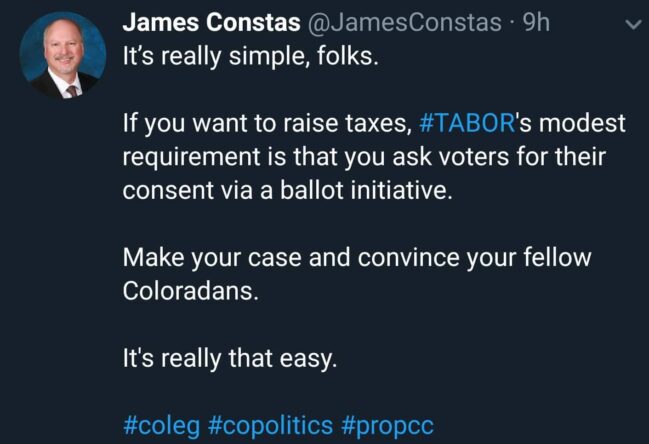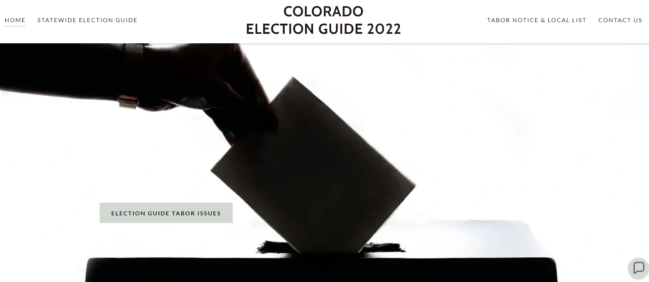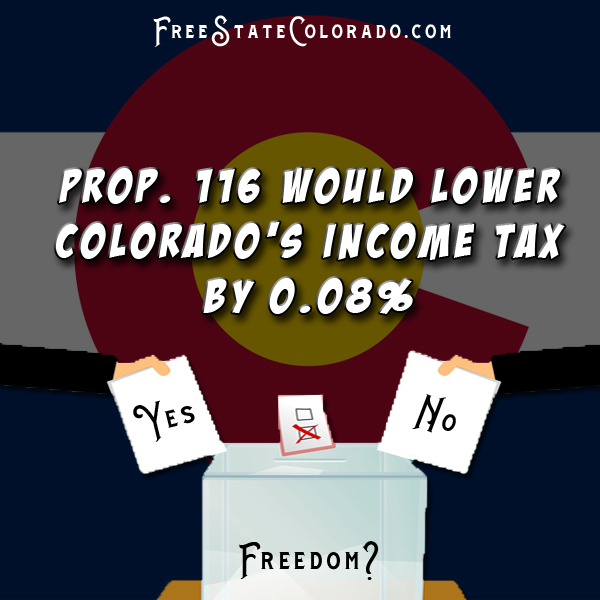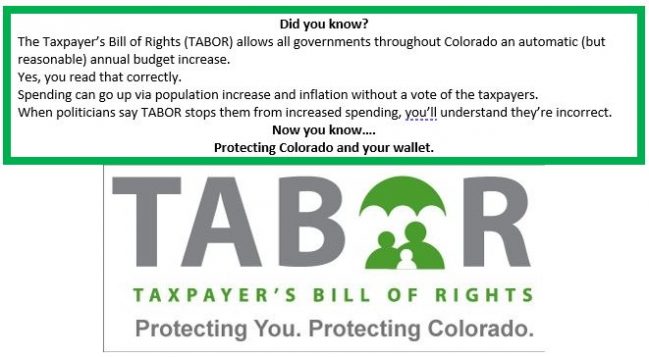Coloradans have voted on 36 TABOR-related ballot measures since 1993, rejecting 69% of them
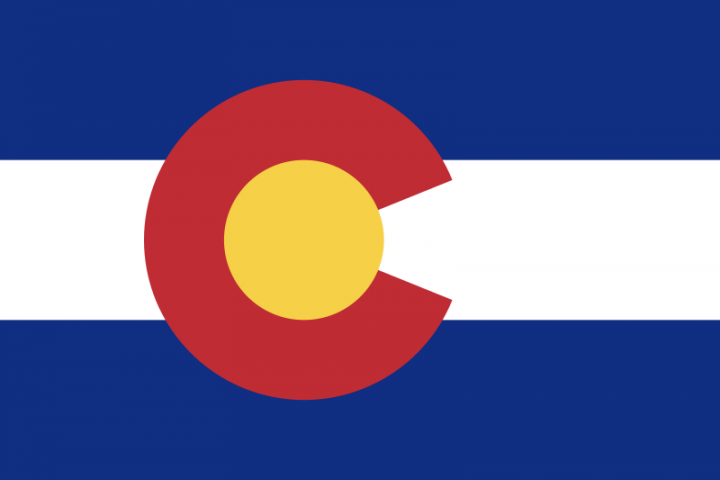
Coloradans have decided on 36 statewide ballot measures that were designed to increase revenue for the state, which required voter approval under TABOR. Of the 36 measures, 11 (30.56%) were approved and 25 (69.44%) were defeated.
Colorado’s Taxpayer’s Bill of Rights (TABOR), adopted in 1992, was designed to require statewide voter approval of all new taxes, tax rate increases, extensions of expiring taxes, mill levy increases, valuation for property assessment increases, or tax policy changes resulting in increased tax revenue.
Of the 36 measures, 17 were referred to the ballot by the state legislature and 19 were placed on the ballot through citizen initiative petitions. Of the 11 approved measures, 10 were referred to the ballot by the state legislature and one was a citizen initiative.
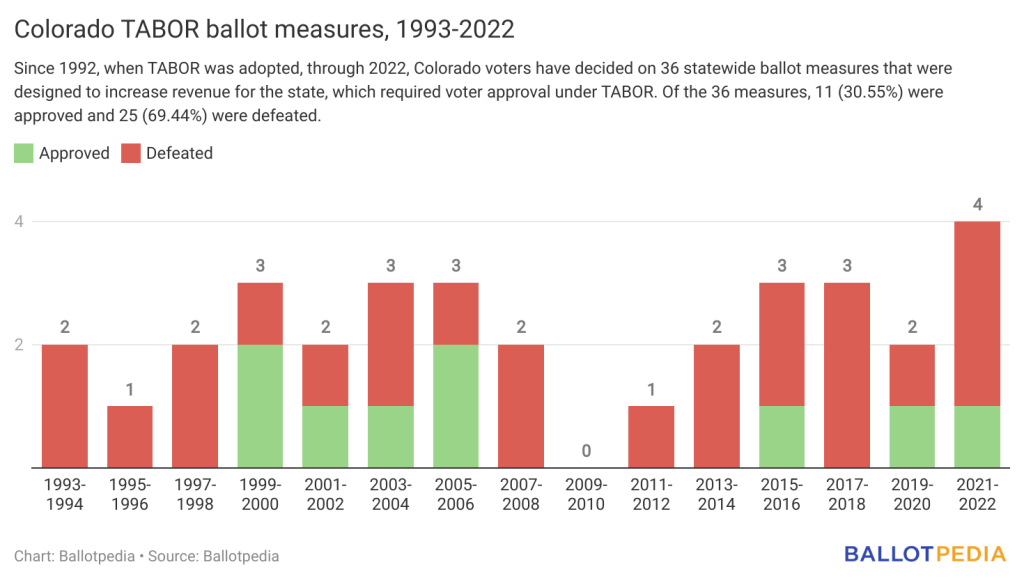
Highlights:
- 14 of the measures were designed to increase a tax. Of the 14 measures, two were approved and 12 were defeated. In 2004, voters approved an initiative to increase the tobacco tax to fund educational and healthcare programs. In 2020, voters approved a measure placed on the ballot by the state legislature to increase tobacco taxes and create a tax on nicotine products to fund health and education programs.
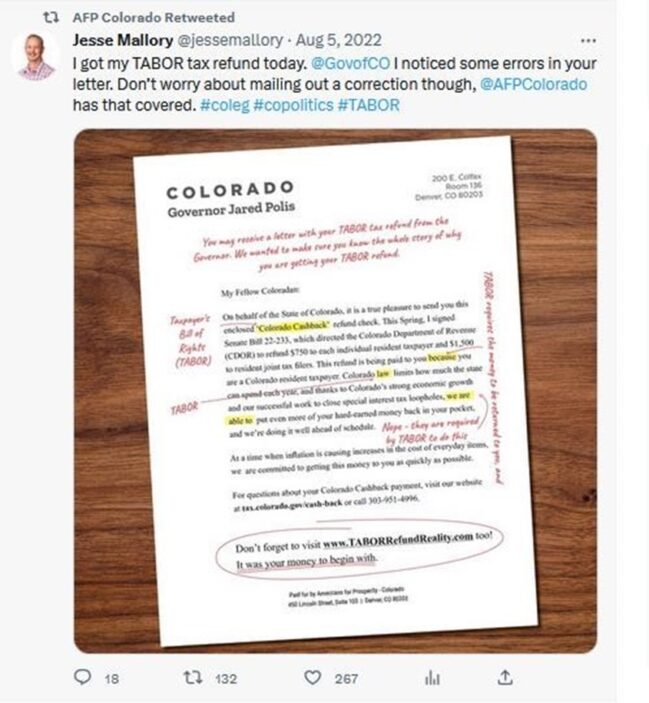

 Last year, Colorado Democrats championed TABOR refunds as they campaigned for reelection. Yet not a week into the 2023 legislative session, they announced plans to try and halt those refunds indefinitely.
Last year, Colorado Democrats championed TABOR refunds as they campaigned for reelection. Yet not a week into the 2023 legislative session, they announced plans to try and halt those refunds indefinitely.